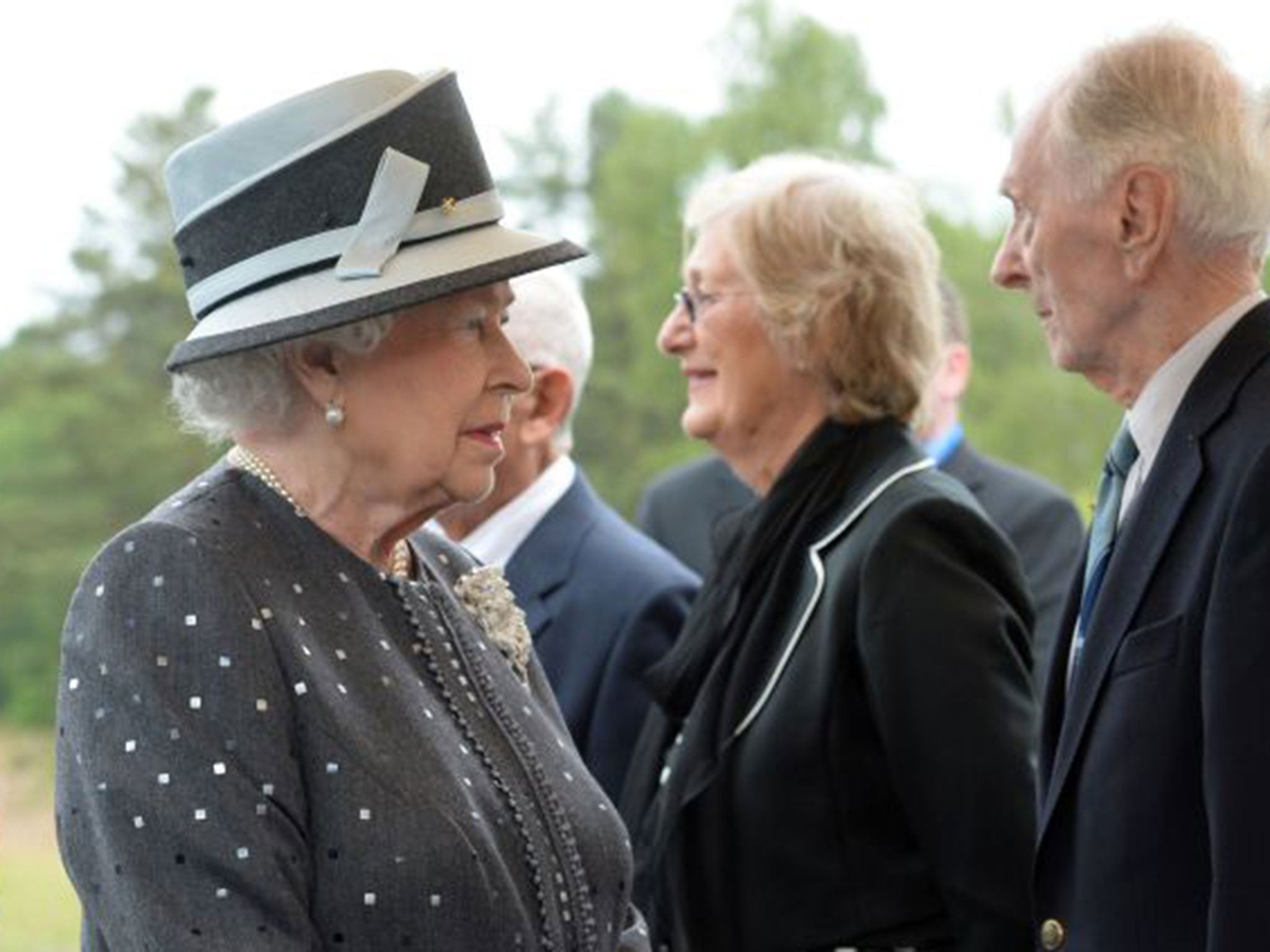Belsen remembered: 96-year-old Royal Navy veteran still haunted by the 'stench' of concentration camp
Captain Eric Brown said the smell in the notorious concentration camp was 'utterly, utterly appalling'

Your support helps us to tell the story
From reproductive rights to climate change to Big Tech, The Independent is on the ground when the story is developing. Whether it's investigating the financials of Elon Musk's pro-Trump PAC or producing our latest documentary, 'The A Word', which shines a light on the American women fighting for reproductive rights, we know how important it is to parse out the facts from the messaging.
At such a critical moment in US history, we need reporters on the ground. Your donation allows us to keep sending journalists to speak to both sides of the story.
The Independent is trusted by Americans across the entire political spectrum. And unlike many other quality news outlets, we choose not to lock Americans out of our reporting and analysis with paywalls. We believe quality journalism should be available to everyone, paid for by those who can afford it.
Your support makes all the difference.A former Royal Navy test pilot who helped interrogate the commandant of the Bergen-Belsen concentration camp at the end of the Second World War has said he still sometimes wakes up with the “stench” of the place in his nostrils.
Captain Eric Brown, 96, a fluent German speaker, questioned SS Hauptsturmfuhrer Josef Kramer and his assistant Irma Grese, who were both later hanged for war crimes.
Speaking as the Queen made a visit to the notorious camp, Mr Brown told The Daily Telegraph: “When we arrived, the camp guards were all lined up and they were handed over to us and in we went. While the brigadier went to find Kramer and Grese, I had a wander round.
“It was utterly, utterly horrific. Firstly there were 10,000 bodies littered around and the worst thing to me was that the [survivors] had been dehumanised.
“They were like animals because they would urinate and defecate wherever they were. They had lost all dignity, they were dying, none of them looked as if they would live.”
He said the smell was “utterly, utterly appalling”.
“I still wake up the odd morning and the stench of Belsen is in my nostrils. It’s the stench that stays with me. God that smell was fearsome,” said Captain Brown, who has visited Belsen several times since the war.
“The thing that always strikes me is that when you get there, there is a clammy feeling, it almost envelops you.
“There’s not a bird in sight – and you’re in a forest – the birds have abandoned it and there is the pall of death everywhere.”
During the interrogations, Captain Brown said Kramer, a “stocky chap” who looked like a “bully boy”, told him he had also worked in Auschwitz, “where his job had been to separate new arrivals into the ones that were to be worked to death and the ones that went straight to the gas chambers”.
“I asked him if he would do it again if he had his time over again and to my astonishment he said yes,” Mr Brown said.
“Irma Grese was probably the worst human being I have ever encountered. She also worked at Auschwitz and I asked her the same question I had asked Kramer.
“She refused to answer, but I kept asking it, and after I’d asked her four or five times she suddenly leapt to her feet, cried ‘Heil Hitler!’ sat down and refused to answer any more questions.”
Join our commenting forum
Join thought-provoking conversations, follow other Independent readers and see their replies
Comments